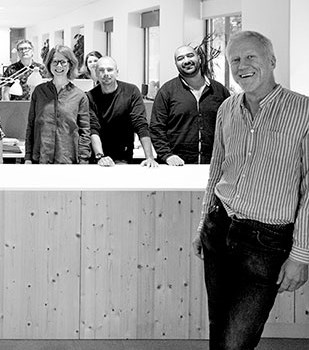Sweden has a long tradition of building in wood and since the beginning of the 21st century the construction of apartment blocks in wood has gradually increased, due to technical advances and industrial construction methods. There are plans to build wooden blocks as high as 15 storeys in Hagastaden and 22 storeys in Sundbyberg. In Bålsta land has been allocated for a 17-storey apartment and office block in wood. Skellefteå has plans for a cultural centre and hotel with 19 floors. I see this as an exciting development.
Wood has properties that make it well suited to industrial production processes. Prefabricated wooden modules that are built in a factory and assembled on site can save time and be more cost-effective than traditional building methods. We are seeing a real breakthrough in industrial wood construction, with increased investment and greater capacity to build apartment blocks in wood. This expanding capacity in the industry is creating jobs across Sweden.
Important research and development is currently underway in the field of wood construction, with researchers and business working together. Research into taller wooden structures and the continued development of new building methods pave the way for the continued development of Sweden’s expertise in building in wood.
There is a need to improve the construction and property industry’s knowledge of their buildings’ impact on the climate from a life cycle perspective.
New studies show that the construction process accounts for a substantial slice of a building’s climate impact over its entire life cycle. Construction materials generate the majority of the emissions during the construction process. The materials used for building are therefore also important in terms of the climate.
The Government has commissioned the Swedish building agency Boverket to review the regulations for newbuilds and submit a proposal that helps to ensure consistency when checking the properties of mass-produced buildings. The Government wishes to remove obstacles to the growing area of industrial construction as part of our housing package, which contains 22 measures to boost housebuilding.
The Government is now drawing up a national forestry programme for Sweden and it has also initiated a collaborative programme focused on the circular and bio-based economy, which aims to reduce our impact on the climate and the environment and improve resource efficiency in our society. Building homes in wood is a cornerstone of this future vision.
I personally want to continue my dialogue with companies in the field since I see the industrial manufacture of housing as an important sector for the future.


























